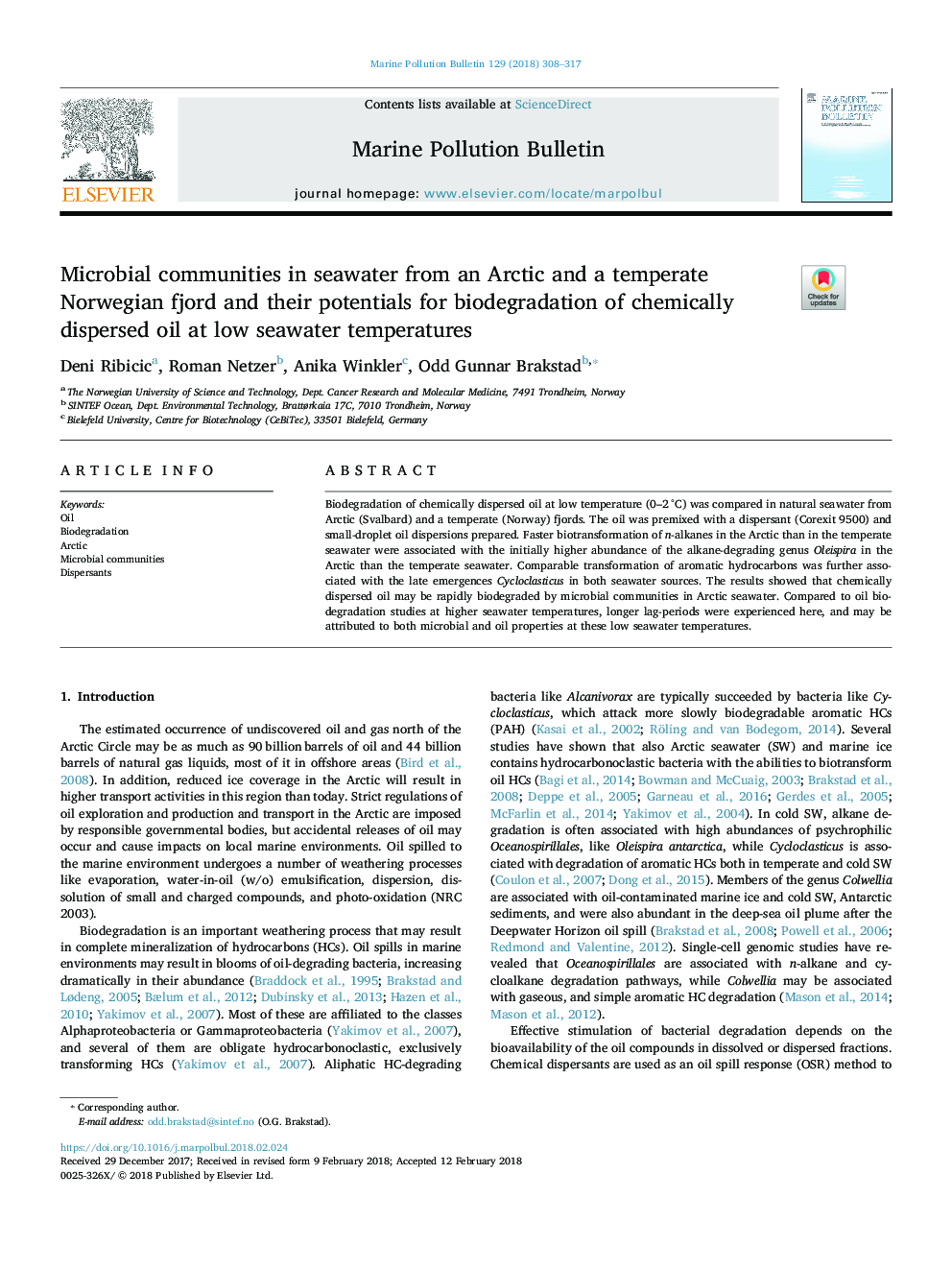| Article ID | Journal | Published Year | Pages | File Type |
|---|---|---|---|---|
| 8871525 | Marine Pollution Bulletin | 2018 | 10 Pages |
Abstract
Biodegradation of chemically dispersed oil at low temperature (0-2â¯Â°C) was compared in natural seawater from Arctic (Svalbard) and a temperate (Norway) fjords. The oil was premixed with a dispersant (Corexit 9500) and small-droplet oil dispersions prepared. Faster biotransformation of n-alkanes in the Arctic than in the temperate seawater were associated with the initially higher abundance of the alkane-degrading genus Oleispira in the Arctic than the temperate seawater. Comparable transformation of aromatic hydrocarbons was further associated with the late emergences Cycloclasticus in both seawater sources. The results showed that chemically dispersed oil may be rapidly biodegraded by microbial communities in Arctic seawater. Compared to oil biodegradation studies at higher seawater temperatures, longer lag-periods were experienced here, and may be attributed to both microbial and oil properties at these low seawater temperatures.
Related Topics
Physical Sciences and Engineering
Earth and Planetary Sciences
Oceanography
Authors
Deni Ribicic, Roman Netzer, Anika Winkler, Odd Gunnar Brakstad,
